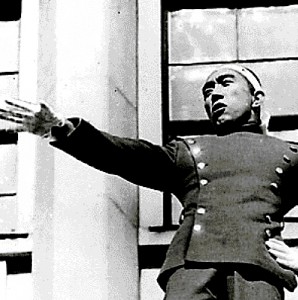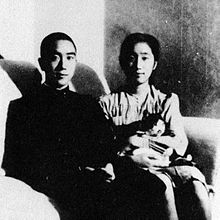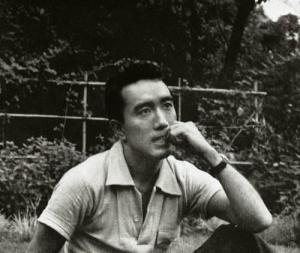Yukio Mishima: The Ultimate Ubermensch and the Last Great Japanese Author
Lee Jay Walker
Modern Tokyo Times
The genius of Yukio Mishima remains vivid today, just like it did yesterday. Indeed, unlike the authors of the modern world where passion is often a mere afterthought – or a planned narrative – the words of Mishima flow within his psyche. In other words, internationally famous modern writers including Haruki Murakami pale in comparison. This is based on the intriguing mindset of Mishima who clung tenaciously to the world he knew – he desired – and whereby Mishima could leave behind based on the trauma of his death.
Mindset wise, Mishima was a fusion of the modern world, the old world, and the world of ancient Japan where death became a dignified reality. Mishima said, “If we value so highly the dignity of life, how can we not also value the dignity of death? No death may be called futile.”
In a past article, I say, “In Mishima’s short memoir, Sun and Steel, it is clear that his obsession during the last ten years was a fusion of writing and bodybuilding to an extreme. This book was published in 1968 and it reflected the psyche of Mishima in this period of his life. He now fused the pen with physical training and concepts of the new Japan betraying the old and glorified Japan. The book Sun and Steel relates to Mishima throwing away his earlier novel Confessions of a Mask. After all, Mishima was now building up to be a man of strength. In other words, the Nietzsche ubermensch was born within the ego and spirit of Mishima.”
The new ubermensch ironically made his words more passionate and mysterious based on him moving away from his personal literary genius. Now, unlike many authors before him, the word became flesh, even if he believed that the word that became flesh must die a dignified death – even if ultimately futile based on the relentless pursuit of typical citizens.
In Spring Snow, Mishima writes, “Dreams, memories, the sacred–they are all alike in that they are beyond our grasp. Once we are even marginally separated from what we can touch, the object is sanctified; it acquires the beauty of the unattainable, the quality of the miraculous. Everything, really, has this quality of sacredness, but we can desecrate it at a touch. How strange man is! His touch defiles and yet he contains the source of miracles.”
Touchingly – and referenced to passionate nationalism – Mishima in The Temple of the Golden Pavilion writes, “The past does not only draw us back to the past. There are certain memories of the past that have strong steel springs and, when we who live in the present touch them, they are suddenly stretched taut and then they propel us into the future.”
Mishima focused on the spirit of the ubermensch rather than typical so-called intellectuals who focus on the ego and empty world of nothingness. Instead, the ubermensch psyche of Mishima admired powerful samurais who gave everything, military leaders who feared not to blink, and people who sacrificed the ultimate for a higher cause based on passionate nationalism and strong regionalism.
Mishima said, “A samurai is a total human being, whereas a man who is completely absorbed in his technical skill has degenerated into a ‘function’, one cog in a machine.”
The death of Mishima was brutal, several cuts to behead him because the planned executioner was no expert. Yet, in the extreme and brutal death that Mishima had planned, his words of passion, the inner-soul, the yearning of belonging within the ubermensch, and so much more – all fused his words within the world that Mishima admired and desired. It matters not if his ending appears futile – after all, the masses still focus on working and turning away from the soul of Japan. Yet, just like Iran under Ayatollah Khomeini, what seems over may one day inspire in the future. Therefore, the words of Mishima and the ultimate ubermensch soul he desired still resound on the fringes for people of passion – even if empty and stale if read from a mindset brainwashed by modernity and conformity.
Overall, Mishima is the last great author of Japan because the mundane now dominates over a world of political correctness and the machinery of narrowness. The final seconds of the life of Mishima led to his personal redemption. However, the redemption of his writing was never needed. This is based on his soul and passion that stands out from the crowd of familiarity.
Modern Tokyo News is part of the Modern Tokyo Times group
DONATIONS to SUPPORT MODERN TOKYO TIMES – please pay PayPal and DONATE to sawakoart@gmail.com
http://moderntokyotimes.com Modern Tokyo Times – International News and Japan News
http://sawandjay.com Modern Tokyo Times – Fashion
https://moderntokyonews.com Modern Tokyo News – Tokyo News and International News
http://global-security-news.com Global Security News – Geopolitics and Terrorism
PLEASE JOIN ON TWITTER
https://twitter.com/MTT_News Modern Tokyo Times
PLEASE JOIN ON FACEBOOK
https://www.facebook.com/moderntokyotimes
Some art and cultural articles by Modern Tokyo Times are republished based on the need to highlight the unique traits of Japanese culture to our growing international readership.




